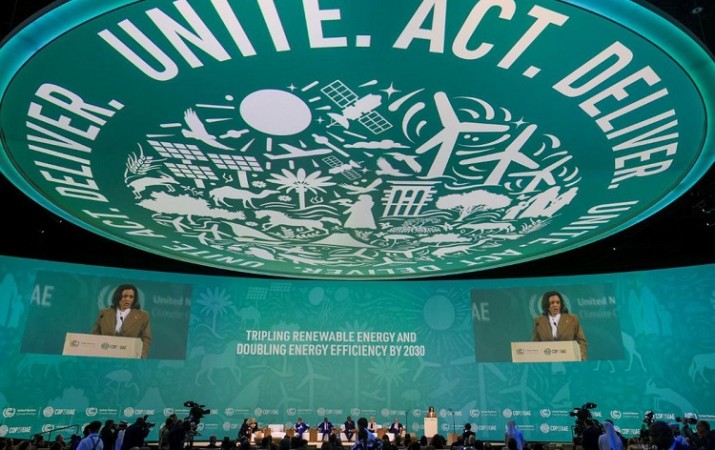
During the UN Climate Summit, more than 118 countries rallied behind a global initiative to triple worldwide renewable energy (RE) capacity to at least 11,000 GW by 2030. Surprisingly, India refrained from signing the international pledge, despite previously showcasing support for clean energy at the G20 Summit held in New Delhi.
This absence from the pledge raises questions about India's stance, especially considering its prior leadership on the issue during the G20 discussions. Vibhuti Garg, Director of South Asia at the Institute for Energy Economics and Financial Analysis, pointed out that India's decision stemmed from discomfort with certain language concerning coal phase-out. Garg highlighted that due to India's ongoing developmental needs and increasing energy demands, it remains hesitant to commit to a coal phase-down at present.
Nevertheless, India's existing 2030 energy objectives inherently imply a tripling of renewable energy, whether or not the nation formally signs such global agreements. Garg emphasized the need for India to seek technological advancements and financial commitments from the Global North to support its sustainable energy goals.
The signatories, led by influential nations such as the US, the UAE, and the EU, not only pledged to triple renewable energy capacity but also committed to doubling the annual global average rate of energy efficiency improvements. These ambitious goals were initially adopted in the New Delhi Declaration in September, where India and China, though not backing the recent pledge, had committed to efforts toward increasing RE capacity.
However, the language within the COP28 pledge, particularly regarding the phase-down of unabated coal power and halting new coal-fired power plants, presents a challenge for developing countries reliant on coal to meet their vast population's energy needs.
In anticipation of COP28, India's Power Minister, RK Singh, reiterated that the goals are aspirational and dependent on each nation's unique circumstances. He stressed the significance of considering individual country contexts in carrying out the transition towards cleaner energy, underscoring the diversity of national circumstances among member countries.
PM Modi Shares Insights from Dubai Climate Summit, Offers India as Future Host
COP28 Summit 2023: PM Modi's Return to Delhi, Highlights from World Climate Action Summit